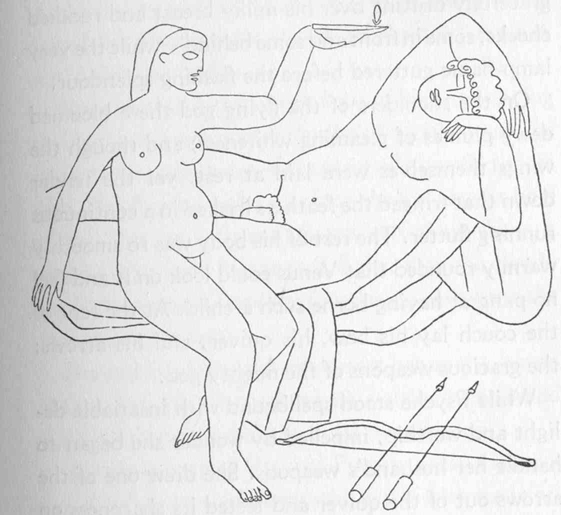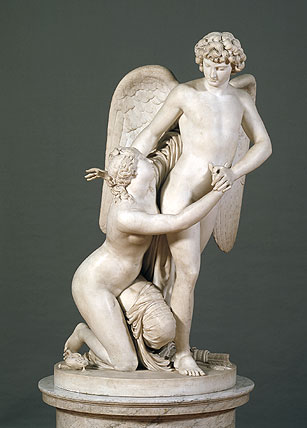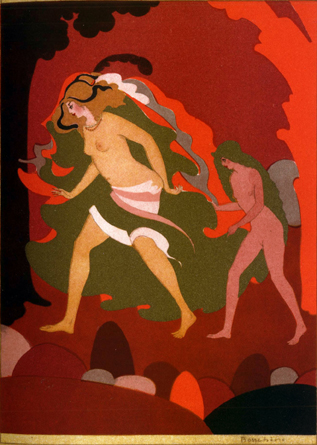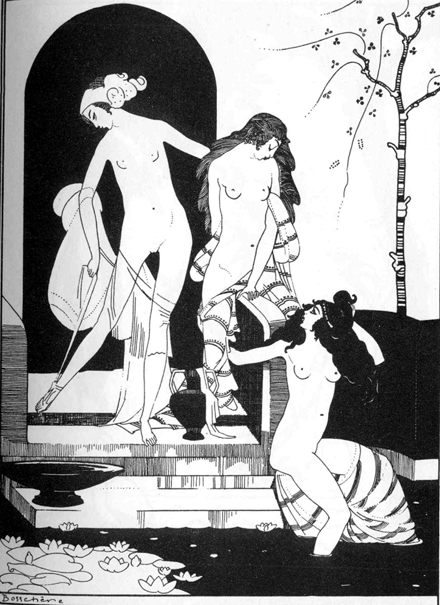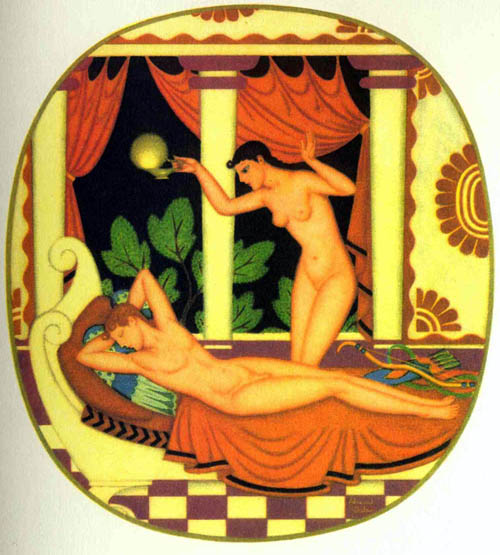
Psyche looks upon Cupid with an oil lamp - illustration by Edmund Dulac
Citizens in crowds, and droves of pilgrims, were attracted by the fame of this extraordinary spectacle. They pressed about her, and stood moonstruck with wonder at her unapproachable loveliness. They raised their right hands to their lips, laying thumb and forefinger together and throwing her a kiss of reverence as though it were the goddess Venus herself that they adored. Already the word had gone abroad through the nearby cities and bordering countries that a goddess had been brought forth by the deep-blue womb of ocean, and nourished by the froth of the curling waves; and that she now dwelt among mortals, allowing them to gaze promiscuously on her divinity—or that, at the very least, Venus had had a Second Birth (this time from earth, not water): a Venus endowed with the flower of virginity, and germinate from a distillation of the stars.
Every day the tale drifted further. Soon the neighbouring islands, most of the mainland, scores of provinces, were echoing with the news. Many were the hurrying men that made long journeys by land and over the deep-seas, only to gaze upon this splendid product of the age. No one set sail for Paphos; no one set sail for Cnidos—no, not even for Cythera—to come into the prescence of Venus. Her sacred rites were forgotten; her shrines were falling into ruin; her cushions were trampled on; her ceremonies were neglected; her images were ungarlanded; and the old ashes lay dirtying the desolate altar.
A young girl had supplanted her, and the divinity of the mighty goddess was worshipped in the shrine of a human face. In her morning walks the virgin was propitiated by the victims and food-offerings due to the missing Venus. When she strolled down the street, the people rushed out and presented her with votive tablets; or they strewed her way with flowers.'
‘But while she stirred above him in the extremity of agonised joy, the lamp (actuated either by treachery, or by base envy, or by a desire to touch so lovely a body—to kiss it in a lamp’s way) spewed a drop of glowing oil from the point of its flame upon the god’s right shoulder.
O bold and reckless lamp! base officer of love! to burn the very god of Flame—you that some lover, inspired by the need to possess the beloved even at night, first devised.
The god, thus burnt, leaped out of bed; and spying the scattered evidence of Psyche’s forfeited truth, he made to fly mutely out of the clasp of his unfortunate wife. But Psyche, as he rose into the air, caught hold of his right leg with both hands and clung there, a wailing drag upon his upward flight. Into the cloudy zones they soared, until her muscles gave way and she dropped to earth.’
